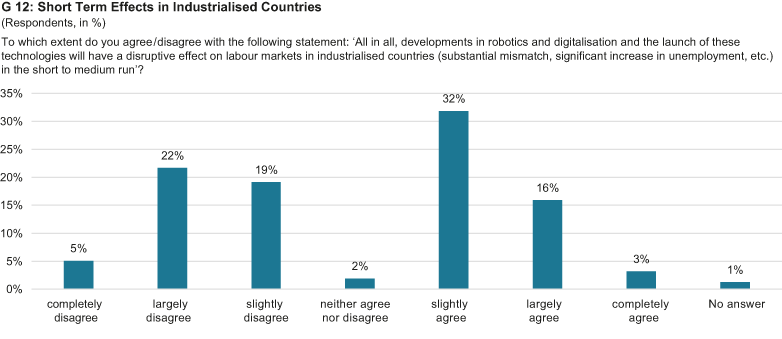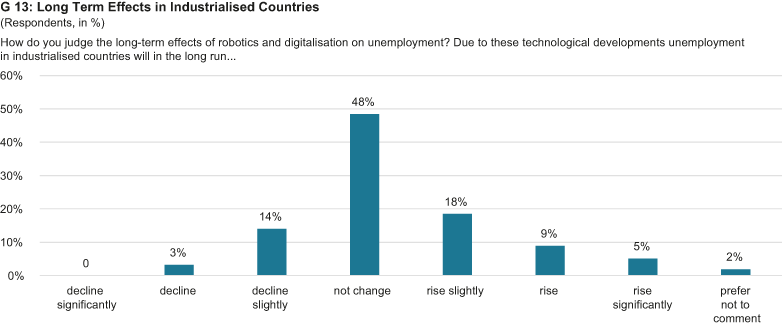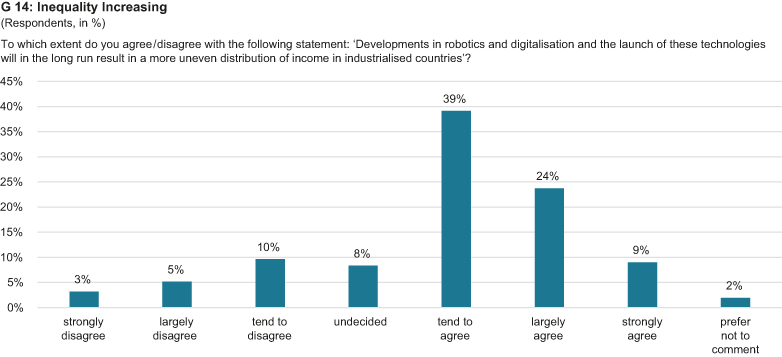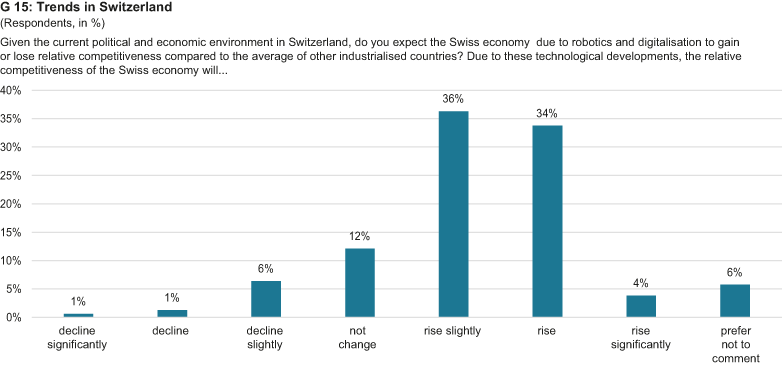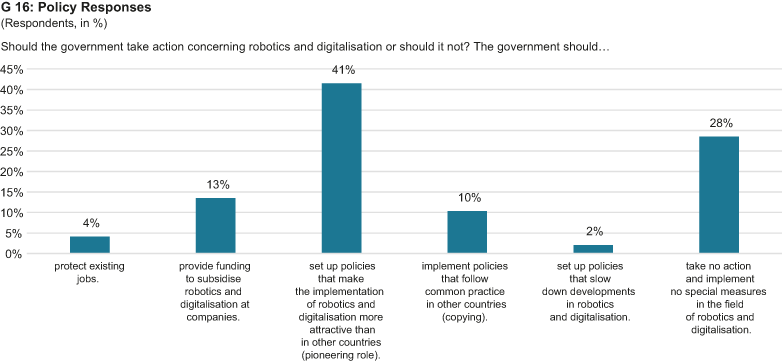How Economists in Switzerland Judge the Fourth Industrial Revolution
- KOF Bulletin
- Surveys
What are the implications of the so-called ‘fourth industrial revolution’? The KOF has for the first time surveyed economics researchers based in Switzerland to obtain their views. It was found that their opinions differ concerning the short-term effects on the labour market.
Over the longer term, the economists do not expect any negative implications on the labour market. In addition, according to their assessments the Swiss economy appears to be relatively well positioned for the challenges of ‘Industry 4.0’.
The buzzword of the Fourth Industrial Revolution is currently doing the rounds. The forerunners of the fourth revolution were the first revolution 1.0 with the invention of the steam engine, revolution 2.0 which saw electrification and revolution 3.0 following the invention of the computer. Now with the advent of the internet we are right in the middle of revolution 4.0.
Leaving aside the issue as to whether this description is accurate, it appears to be relatively uncontroversial that productive and logistical processes have been undergoing radical change since internet usage has become ubiquitous. This often includes in particular the evident automation, digitalisation and robotisation of processes that were previously performed by people. This has gone hand in hand with a widespread fear of technology-induced unemployment, in particular in professions in which routine work is the rule. However, there have recently also been warnings of the possible automation of medium and high-skilled jobs.
The KOF survey
The KOF has now, in a cooperation with the Swiss Radio and Television external page SRF, for the first time carried out a survey of economists based in Switzerland working at universities and research institutes in order to establish how they assess the current upheavals associated with the fourth industrial revolution. The survey focuses on implications for the labour market and possible (governmental) reactions. The first of the total of 9 survey questions addresses the short-term ‘disruptive’ effects of digitalisation and automation on the labour market (see G 12).
There is a stark divide here between the economists, which manifests itself in the cluster of answers for respectively ‘largely disagree’ and ‘slightly agree’. This is not a manifestation of the old adage ‘two economists, three opinions’, but rather an indication of the fact that there is no consensus amongst specialists concerning the short-term implications of the fourth industrial revolution.
The economists surveyed were somewhat more in agreement concerning the longer-term implications: just under 50% do not expect there to be any effects on unemployment (see G 13). If one adds together the answers of those who expect positive effects, as many as 65% do not expect any effects or for unemployment to decline. On the other hand, just over 30% expect slight to highly negative longer-term effects on the labour market.
Economists consider that the effects on income distribution will be less positive and more unequivocal. A majority of economists tends towards the view that income distribution in industrialised countries could become more unequal as a result of these new technologies (see G 14).
Switzerland can benefit
According to the economists, robotics and digitalisation in Switzerland is expected to lead to a downward trend in demand for low-skilled labour as against an upward trend for highly-skilled workers. When assessing the demand for medium-skilled workers, a majority of economists also considers that it will be lower, although a considerable portion do not expect demand to change at all. Overall, economists think that Switzerland is more likely to be a winner from the introduction of these technologies. The framework conditions here are structured in such a manner that Switzerland will become more competitive compared to other industrialised countries (see G 15).
As regards the options for action by the political class, a considerable proportion of economists consider that politicians should change the framework conditions in such a manner as to enable Switzerland to take on a pioneering role. However, a large number of economists take the view that no specific action is required on the part of the government. (see G 16).
Information concerning the survey
The KOF surveyed a total of 476 economics researchers. 157 of them answered. This corresponds to a response rate of 33%. The ‘economics researchers’ surveyed were economists working at publicly funded institutions who actively publish in scientific journals. The survey was a special cooperation with the Swiss Radio and Television external page SRF.
The KOF is acting here as a mediator between academic researchers and the public at large and its aim by this survey is to give a stronger voice to economics researchers.
Contact
KOF Konjunkturforschungsstelle
Leonhardstrasse 21
8092
Zürich
Switzerland
Contact
No database information available
